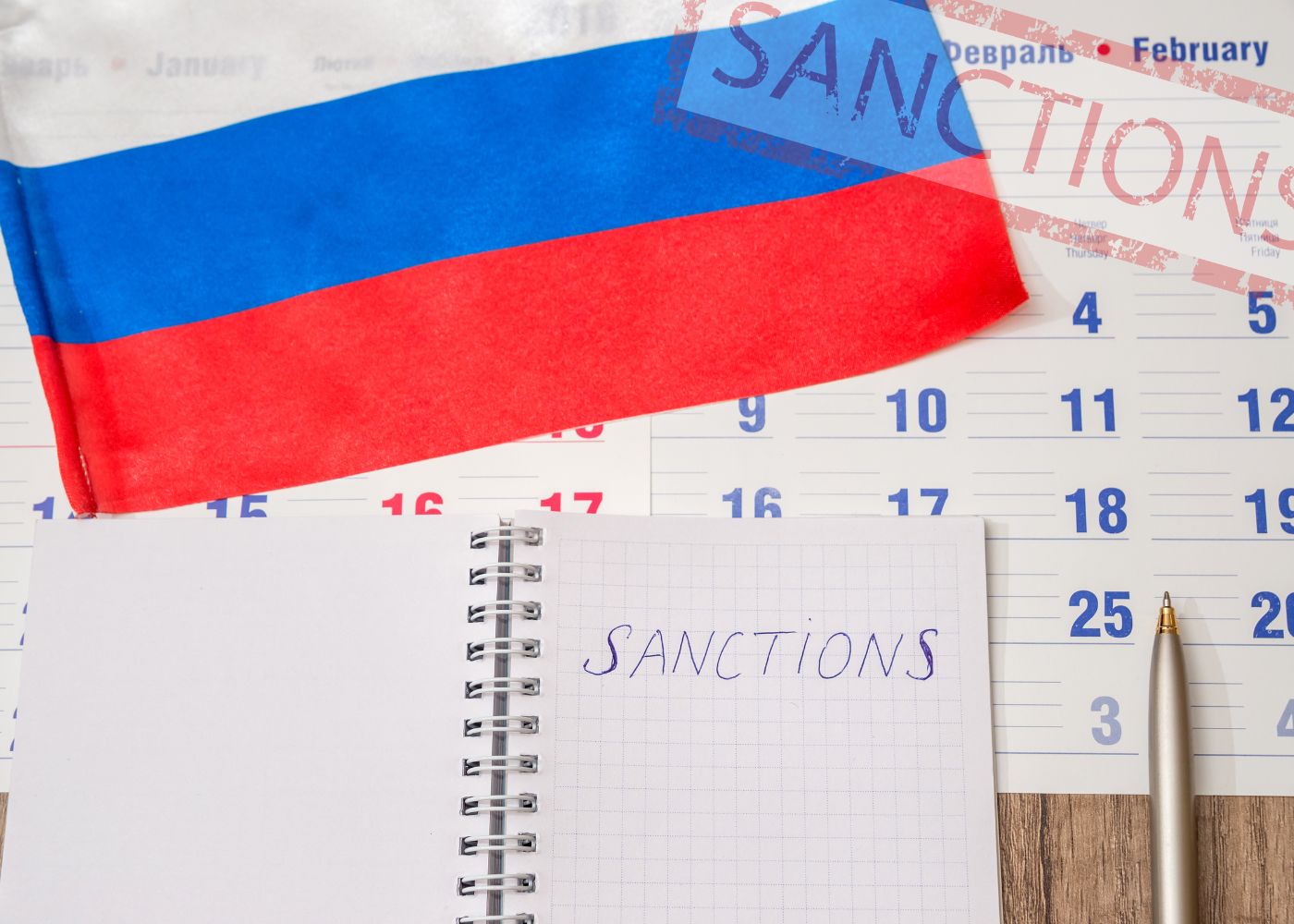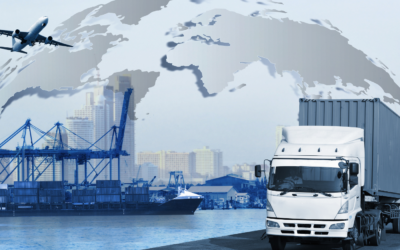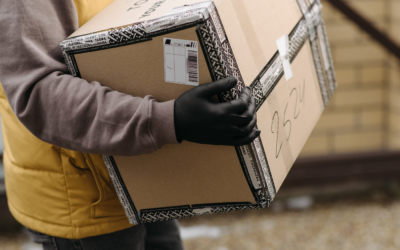À la suite de l’offensive russe en Ukraine, l’Union européenne (UE) a imposé des restrictions aux échanges commerciaux avec la Russie et d’autres territoires participant à l’attaque. Les établissements, publics ou privés, européens ne peuvent donc plus vendre ou acheter certains produits à la Russie. La liste de marchandises concernées par ces sanctions est régulièrement mise à jour. Elle a pour objectif d’affaiblir au maximum l’économie russe, tout en minimisant les impacts négatifs sur les entreprises et les citoyens européens. Les secteurs de la santé, de l’industrie pharmaceutique, de l’alimentation et de l’agriculture sont les moins touchés.
43,9 milliards d’euros : c’est la valeur des exportations de biens vers la Russie interdites par l’UE depuis février 2022, d’après la Commission européenne. La valeur des importations dans ce cadre est estimée à 91,2 milliards d’euros. Cela représente 49 % des exportations et 58 % des importations par rapport aux volumes enregistrés en 2021.
Quels territoires sont concernés par ces sanctions économiques ? Quels sont les produits interdits à l’exportation ou à l’importation dans ce cadre en 2024 ? Quelles sont les nouvelles mesures douanières restrictives contre la Russie ? Nous faisons le point !
Les territoires concernés par les restrictions douanières en réponse à l’agression militaire de la Russie en Ukraine
Pour les entreprises européennes et françaises, les échanges commerciaux avec les territoires suivants sont restreints ou interdits depuis le début de la guerre en Ukraine :
- la Fédération de la Russie ;
- la Biélorussie ;
- les zones des oblasts ukrainiens de Donetsk et de Lougansk non contrôlées par le gouvernement ukrainien.
Les produits interdits à l’exportation de l’UE vers la Russie
Depuis le début de la guerre en Ukraine, les entreprises européennes ne peuvent plus vendre certains produits à la Fédération de Russie, à la Biélorussie et aux territoires des oblasts ukrainiens de Donetsk et de Lougansk non contrôlés par le gouvernement ukrainien.
Les interdictions concernent d’abord les technologies de pointe telles que les ordinateurs quantiques, les semi-conducteurs avancés, les logiciels et les composants électroniques. L’UE interdit à l’exportation les équipements et produits technologiques ainsi que les services relatifs aux secteurs de l’énergie, de l’aviation et de la navigation maritime. Cela comprend, par exemple, les carburéacteurs, les aéronefs, les moteurs d’aéronefs, les équipements de radiocommunication, les pièces de rechange et tout type d’équipement pour avions et hélicoptères.
Certaines machines et matériels de transport ne peuvent pas être exportés en Russie comme les produits et technologies essentiels au raffinage du pétrole. Les biens à double usage (militaire et civil) sont aussi concernés par ces restrictions. Les drones, les logiciels pour drones et les dispositifs de chiffrement destinés à la Russie ne passeront pas, non plus, les frontières européennes. Dans le même registre, l’UE bloque toute exportation, vers ce pays, les armes à feu à usage civil, leurs pièces et certains équipements militaires.
Ces sanctions économiques ne se limitent pas au secteur militaire. Les produits de luxe (montres, bijoux, voitures, etc.), les batteries au lithium, les produits chimiques et les thermostats sont aussi concernés. L’UE interdit aussi la vente à la Russie de tout produit ou technologie susceptible de renforcer l’industrie du pays des Tsars.
Les biens interdits à l’importation depuis la Russie vers l’UE
Depuis décembre 2022, les pays européens ont cessé toute importation de pétrole brut russe. Les produits pétroliers raffinés de cette même origine, sauf quelques exceptions, sont interdits à l’achat en Europe depuis février 2023. Les restrictions de l’UE en matière d’importation depuis le plus grand pays du monde concernent aussi :
- le charbon et tout autre combustible fossile solide ;
- l’or et les diamants, dont les bijoux ;
- l’acier, le fer et les produits de sidérurgie ;
- les produits de la mer et les spiritueux à l’instar du caviar et de la vodka ;
- le ciment, le bois, l’asphalte, le papier, le caoutchouc synthétique et les matières plastiques
- les cigarettes et les produits cosmétiques.
Dans cette mesure douanière, une attention particulière a été portée aux diamants. En effet, les entreprises et autres organismes européens n’ont pas le droit d’importer cette pierre précieuse si elle est :
- d’origine russe ;
- importée de Russie ;
- en transit par la Russie ;
- d’origine russe et transformée dans un pays tiers.
Les diamants naturels et synthétiques non-industriels ainsi que la joaillerie de diamant font l’objet d’une interdiction directe à l’importation depuis la Russie vers l’Europe depuis le 1er janvier 2024. S’ajoute à cela une interdiction indirecte qui sera appliquée de manière progressive du 1er mars 2024 au 1er septembre 2024. Elle concerne les diamants russes taillés et/ou polis dans des pays tiers. Les bijoux intégrants ce matériau n’échapperont pas à cette mesure restrictive.
La clause de non-réexportation vers la Fédération de Russie
En décembre 2023, l’UE a instauré une nouvelle clause qui s’applique aux exportateurs européens. Elle interdit contractuellement la réexportation vers la Russie et en vue d’une utilisation au sein de la Fédération d’un nombre limité de biens. Cette clause concerne toute opération de fourniture, de vente, d’exportation ou de transfert vers un pays tiers. Elle exclut cependant les pays partenaires. Voici les produits qui font l’objet de cette nouvelle mesure :
- les biens à double usage ;
- les produits relevant de technologies de pointe et susceptibles d’être utilisés dans le système militaire russe contre l’Ukraine ou nécessaires à leur fabrication ;
- les produits essentiels à la production ou utilisation des systèmes militaires russes ;
- les biens et armes aéronautiques.
Ce sont les autorités douanières qui sont tenues de mettre en œuvre ces interdictions. Par ailleurs, l’UE a déclaré se réserver le droit de cesser tout traitement avec la Russie comme nation favorisée dans le cadre de l’OMC (Organisation mondiale de commerce). Faute d’augmenter les droits de douane à l’importation, elle a interdit de vendre ou d’acheter à la Russie certains biens. En collaboration avec ses partenaires, elle a aussi suspendu les démarches relatives à l’adhésion de la Biélorussie à l’OMC.
Depuis le 30 septembre 2023, l’UE a mis en place de nouvelles restrictions contre la Russie. Les produits finis et semi-finis en acier et en aluminium d’origine russe ne peuvent plus franchir les frontières européennes.
Les mesures douanières restrictives contre la Russie applicables au transport
L’UE ferme ses frontières aux transporteurs russes et biélorusses. Les sanctions douanières mises en place dépendent du type de transport.
Le transport routier
Qu’ils transportent des produits russes ou en transit depuis la Russie, les camions provenant de ce pays ne peuvent pas franchir les frontières européennes. Le but est de limiter les capacités industrielles russes et de perturber le commerce routier depuis et vers le pays des Tsars. Néanmoins, des dérogations peuvent être accordées aux :
- expéditions liées aux secteurs de l’énergie, des produits pharmaceutiques, médicaux, agricoles et alimentaires ;
- produits destinés à l’aide humanitaire ;
- transport relatif aux représentations diplomatiques et consulaire de l’UE et de ses États membres en Russie, aux organisations internationales en Russie bénéficiant d’immunités dans le cadre du Droit International ;
- transferts ou exportation vers la Russie de biens culturels prêtés dans le cadre d’une coopération culturelle officielle ;
- entrées dans l’UE de véhicules portant une plaque d’immatriculation diplomatique ou servant une opération humanitaire ;
- accès de voitures de ressortissants de l’UE résidant en Russie.
Les services de courrier et les marchandises en transit entre l’oblast de Kaliningrad et la Russie ne sont pas concernés par l’interdiction.
Le transport aérien
Depuis février 2022, les transporteurs russes n’ont plus accès aux aéroports de l’UE. Ils ne peuvent pas non plus survoler l’espace aérien européen. Comme le Canada, les États-Unis et le Royaume-Uni, les pays européens interdisent de fournir tout service d’assurance, d’assistance technique ou d’entretien en rapport avec les biens et technologies liés à l’industrie aéronautique et spatiale.
Le transport maritime
Avec ses 2 800 bateaux, la flotte marchande russe s’est vu interdire l’accès aux ports de l’UE. Certains navires ne sont cependant pas affectés par cette mesure. Il s’agit de ceux transportant :
- de l’énergie ou du charbon ;
- des produits alimentaires, agricoles, médicaux ou pharmaceutiques ;
- de l’aide humanitaire ;
- du combustible nucléaires et d’autres biens essentiels au fonctionnement des centrales civiles.
D’autres navires échappent à cette restriction : il s’agit de ceux demandant une assistance ou cherchant à se réfugier et ceux faisant escale d’urgence pour sauver des vies humaines en mer ou pour la sécurité maritime.
Pour déceler toute tentative de changement de pavillon ou d’immatriculation par les transporteurs maritimes russes, les services douaniers s’appuient sur le numéro OMI. Il s’agit d’un identifiant numérique unique attribué à chaque navire par l’Organisation maritime internationale.
Les restrictions douanières contre la Russie en 2024 : ce qu’il faut retenir
Les mesures restrictives douanières établies par l’UE contre la Fédération de Russie ont pour but premier d’affaiblir son industrie. Cette forte prise de position pour l’indépendance du territoire ukrainien, dans son ensemble, entrave l’économie russe qui reposait en bonne partie sur les échanges commerciaux avec les pays européens, avant la guerre.
Toutefois, l’UE et ses États membres gardent la sécurité alimentaire comme une priorité essentielle. Ils autorisent donc explicitement l’achat et le transport de denrées alimentaires et de produits agricoles russes pour éviter toute crise de ce genre. L’action humanitaire constitue aussi une limite infranchissable dans le cadre de ces sanctions.
L’UE met régulièrement à jour ses mesures contre l’invasion russe en Ukraine. Pour les entreprises et les transporteurs européens, il est donc primordial de se tenir informé des nouveautés.
Vous souhaitez exporter ou importer des produits depuis ou vers la Russie ou la Biélorussie ? Vous avez besoin d’expédier de l’aide humanitaire en Ukraine ? Contactez notre service client pour tout savoir sur ce type d’opérations ! Nous vous accompagnerons sur l’ensemble du processus.
Sources :





0 commentaires